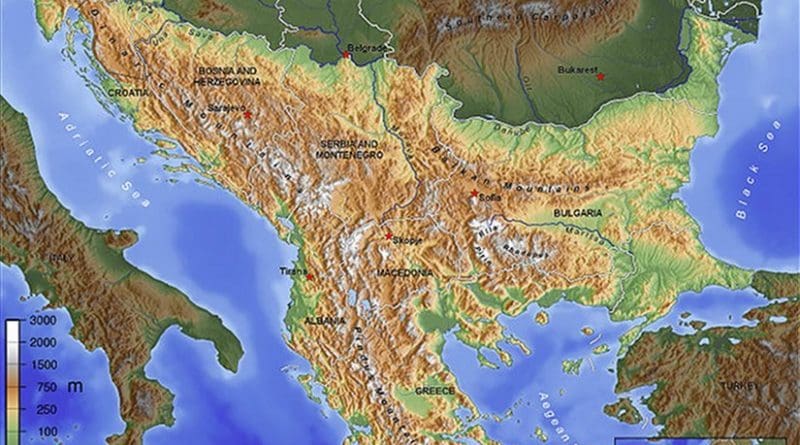US Queries Balkan States’ Capacity To Fight Terrorism
By Mariya Cheresheva
The Balkan states demonstrated a strong commitment to countering terrorism in 2015 – but poor administrative capacity, corruption and ineffective coordination have hindered efforts, the US State Department noted in its terrorism report for 2015, published on Thursday.
The document, which reported a 13-per-cent drop in the number of terror attacks globally, covers six Balkan countries – Albania, Bosnia, Bulgaria, Macedonia, Kosovo and Serbia.
Albania’s donations of weapons for Kurdish forces in northern Iraq are noted as a sign of its strong support for the fight against Islamic State, ISIS.
The report praised Albania’s legal efforts to address the problem of Albanians traveling to fight in Syria as well as the adoption of a national strategy to combat violent extremism.
At the same time, the US State Department noted Albania’s lack of capacity to collect biometric data.
Corruption, combined with a poorly functioning judicial system, continued to hinder Albania’s law-enforcement efforts at all levels, the report notes.
Turning to Bosnia, the significant number of Bosnians that have traveled to Syria and Iraq to join terrorist groups is noted as a problem.
However, in 2015, Bosnia produced the Balkan region’s first comprehensive Strategy for Preventing and Combating Terrorism.
According to the US report, the majority of Bosnia’s coordination and cooperation problems are caused by overlapping law-enforcement jurisdictions.
“The problems are also the result of personal, political, and institutional rivalries that exist among most police agencies and the BiH Prosecutor’s Office and BiH Court. Many of these rivalries are deeply ingrained and difficult to overcome,” the report said.
Bulgaria received a positive assessment for enhancing the extradition of suspected foreign terrorist fighters, as well as for boosting its terrorism prevention and enforcement tools.
But the capacity of its specialized court for organized crime and the ability of its prosecutors’ office to handle terrorism cases are viewed as a challenge.
“Consecutive structural changes and reorganization of key police units, and the resulting reassignment of personnel and imposition of new rules, slowed joint casework and harmed law enforcement morale,” the US report notes.
Kosovo’s efforts to track and prosecute terror suspects in 2014 and 2014 are highlighted as a sign of political will to address threats related to terrorism.
However, Kosovo’s institutions – including investigative and prosecutorial elements – have only a limited capacity, resources, and experience to handle terrorism cases effectively, the report says.
Macedonia’s indictment of 37 people and the arrest of 13 individuals under the recently-passed law on foreign terrorist fighters is noted as “major counterterrorism efforts”.
The country is called “an enthusiastic partner both regionally and internationally on counter-terrorism”, although Greece’s unwillingness to recognize Macedonia’s name limits Macedonia’s ability to fully participate in multilateral forums.
Serbia is criticized for lacking both a national counterterrorism strategy and infrastructure and state-sponsored programs for countering violent extremism.
“A lack of clarity regarding primacy between law enforcement and prosecutorial authorities, as well as jockeying between agencies competing for primacy in the field of counter-terrorism, has hampered interagency cooperation”, the report stresses.
It terms of regional border security, Serbia’s cooperation with Bulgaria, Hungary and Romania is viewed as strong, but partnerships with Croatia, Montenegro, and Bosnia and Herzegovina – remain less developed.
“Because of the sensitive issue of Kosovo, whose independence Serbia does not recognize, cooperation on border security is least developed between Serbia and Kosovo,” the US report says.

